By : Ranjana Bhandari, GPT English Teacher, GHPS Hulkutri.
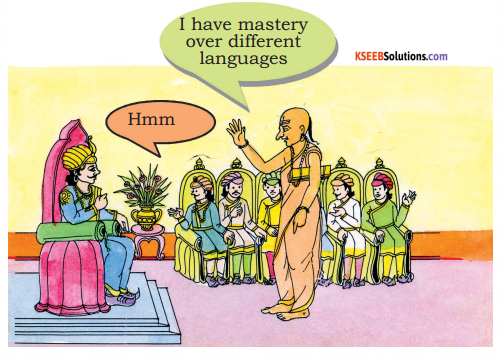
Preparatory Activity :
- Can you answer the following riddles?
What is the longest word in the English language ?
‘Smiles’ – because there is a ‘mile’ between its first and
last letters.
What starts with ‘P’, ends with ‘E’ and has millions of
letters ?
The ‘Post office’
What word begins with ‘e’, ends with ‘e’ and has one
letter ?
‘Envelope’
Which ‘pillar’ keeps crawling all the time ?
caterpillar
What has size and shape but no weight ?
a shadow
Which son may prove dangerous ?
poison
What cannot move or walk, but can go from place to
place ?
road
Which letter in the English alphabet always asks a
question ?
y
Language work (Grammar)
Articles – ‘a’, ‘an’ and ‘the’
Articles :
Articles are words that define a noun as specific or unspecific.
English has two types of articles: definite and indefinite.
Indefinite article : a, an
Use ‘a’ when the noun begins with a consonant.
Example- a bag, a cat
Exception- when the vowel ‘u’ sounds like you.
Example- a university, a utensil
Use ‘an’ when the noun begins with a vowel.
Example- an apple, an umbrella
Exception- when the consonant ‘h’ is silent.
Example- an hour, an honour
Definite article : the
* Unique things – the sun, the moon, the sky etc.
* Specific things – the umbrella in the bag, The children are in the garden.
* Superlative degrees of adjectives – the tallest, the most interesting thing etc.
* Before names of newspaper, magazines – the Times of India, the Hindustan times etc.
Present tense forms :
Past tense and Present tense
learned – learn
visited – visit
said – say
had – have
continued – continue
spoke – speak
made – make
challenged – challenge
presented – present
could – can
discussed – discuss
filled – fill
accepted – accept
defeated – defeat
found – find
should – shall
heard – hear
took – take
shouted – shout
slept – sleep
astonished – astonish
proved – prove
left – leave
Video Grammar
The Scholar’s Mother Tongue

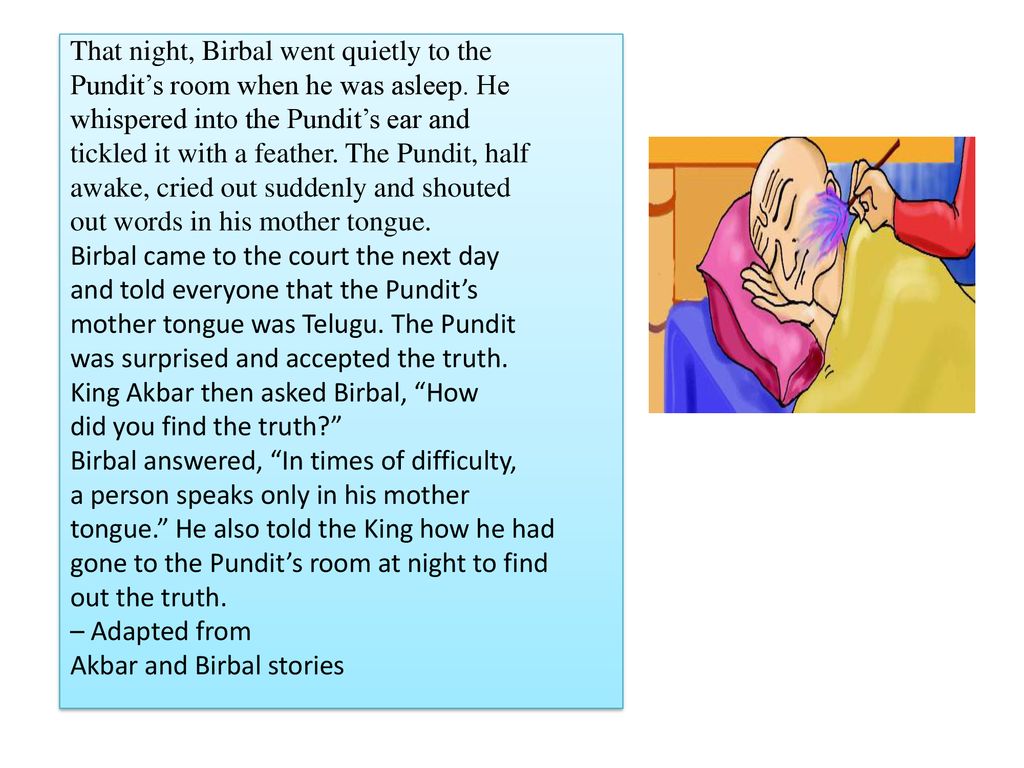
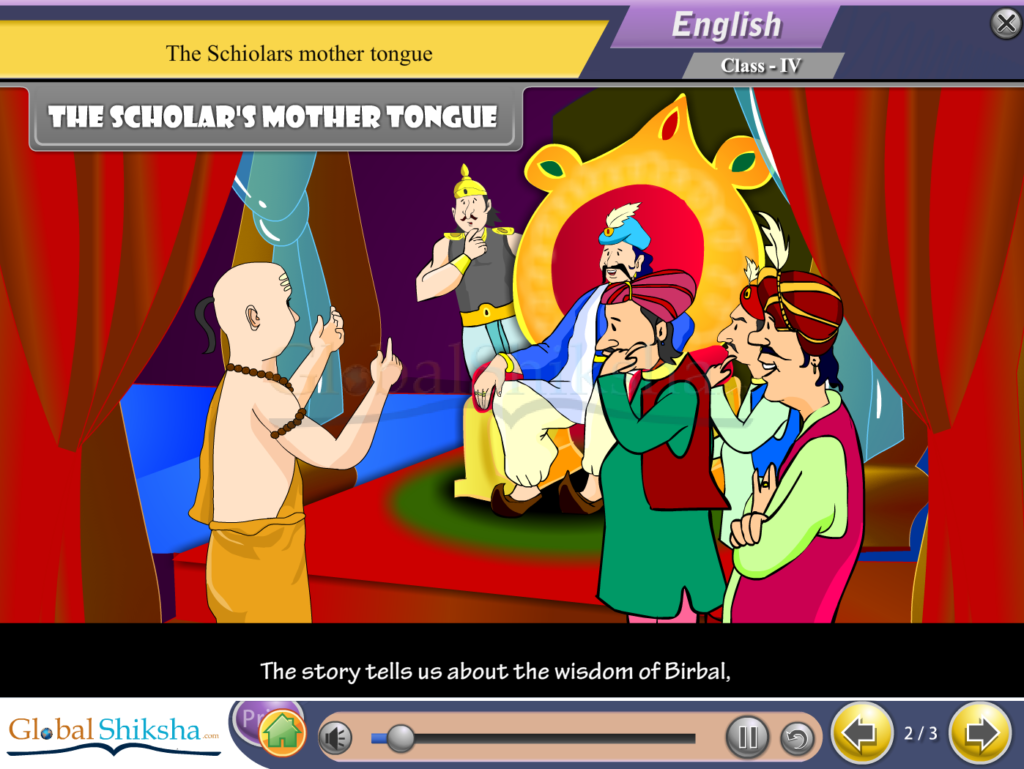
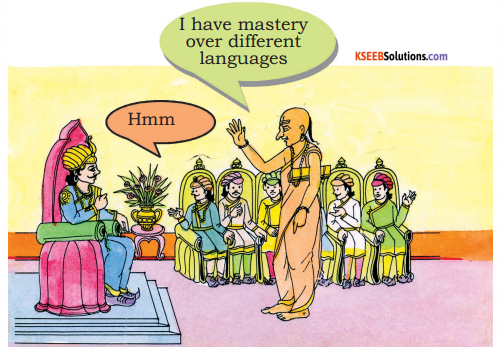

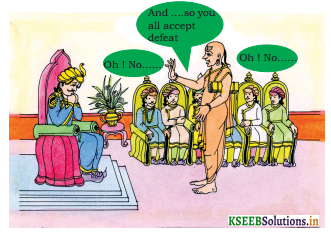

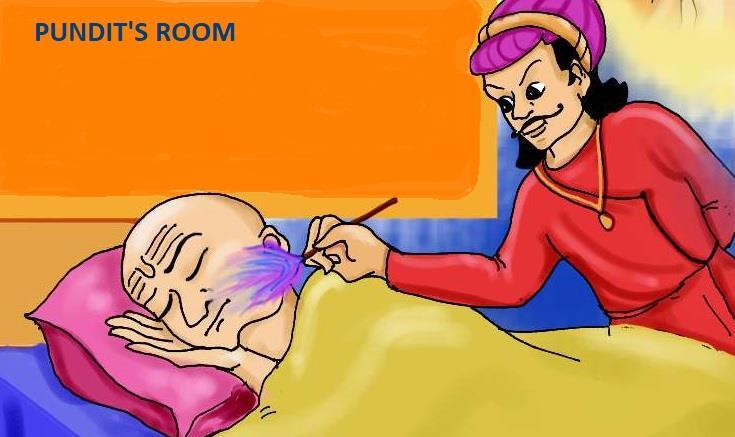
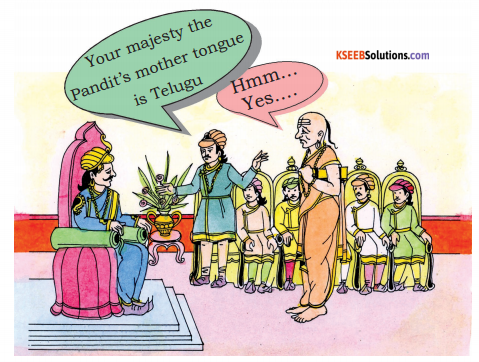
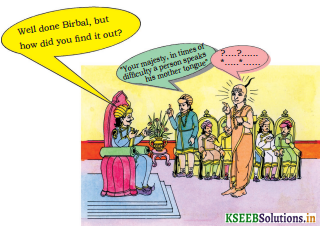
Glossary : (with pictures)
Scholar – someone who has studied a subject and knows a lot about it. ವಿದ್ವಾಂಸ
Mother tongue – a language from which another language derives, one’s native language. ಮಾತೃಭಾಷೆ
Court – the residence or establishment of a sovereign or similar dignitary. ಆಸ್ಥಾನ
Mastery – skill or knowledge that makes one master of a subject. ಪಾಂಡಿತ್ಯ
Fluent – able to speak a language naturally without stopping or making mistakes. ನಿರರ್ಗಳವಾಗಿ, ಸರಾಗವಾಗಿ
Sneak – go quietly. ತಪ್ಪಿಸಿಕೊಳ್ಳು
Whisper – speak in a low voice. ಪಿಸುಮಾತು
Tickle – touch someone lightly. ಕಚಗುಳಿ ಇಡು
Astonished – surprised. ಆಶ್ಚರ್ಯಚಕಿತರಾದ
Dismay – a feeling of sadness and disappointment. ನಿರಾಶೆ

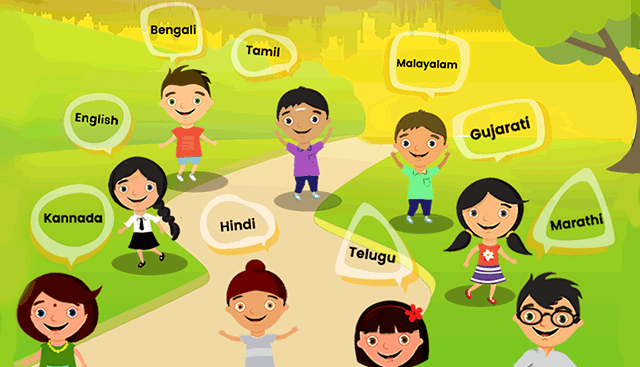









Fantastic Info! But I m having some trouble trying to load your blog. I have read it many times just before and never gotten a thing like this, but now when I attempt to load some thing it just takes a bit whilst (5-10 minutes ) after which just stops. I hope i don???¨º?¨¨t have spyware or a thing. Does anyone know what the difficulty might be?